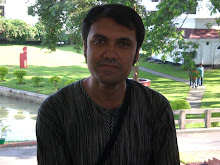http://www.bcas.net/Env.Features/Energy/2003/December2003/15%20to%2030.htm
Master plan envisages ‘clean’
Julhas Ripon
The Dhaka City Corporation and the Japanese International Cooperation Agency have started formulation of a comprehensive, modern and environment-friendly solid-waste management plan for a ‘clean Dhaka by 2015’.
The Clean Dhaka Master Plan will deal with different aspects of solid-waste management and focus on a strategy of reduction, recycling and reuse.
The plan will be submitted to the government in January, said Mayor Sadeque Hossain Khoka on Wednesday.
The mayor was earlier briefed about the inception report on the master plan by experts and officials of JICA and the DCC counterpart personnel unit.
Japanese ambassador to Bangladesh Matsushiro Horiguchi and JICA resident representative Takashi Sakamoto were present at the briefing, and so were former chief executive officer A.Z.M. Shafiqul Islam and chief conservancy officer of the DCC Sohel Faruquee.
The 16-member counterpart personnel unit, led by Anwar Hossain Patwary, and JICA experts are conducting a study of the 360-square-kilometre corporation area and newly-urbanised areas on its outskirts to formulate the plan.
A joint study, conducted by JICA and the DCC in 2000, found that the city generated everyday about 5,000 tonnes of sold waste, more than 80 per cent of which is biodegradable domestic waste.
If the population growth continued at the current rate, the daily volume would be no less than 11,000 tonnes by 2015, says the study.
The planned master plan will address different technical, institutional and social issues to establish a sustainable mechanism of scientific solid-waste management.
The plan will also suggest how technology transfer through close collaboration with counterpart personnel unit can be ensured.
The joint team will pinpoint technical issues related to collection, transportation, recycling, immediate treatment and disposal of garbage to meet the ‘clean’
JICA officials also said they would work for capacity building of the corporation’s solid waste management cell, enriching its survey skills for comprehensive planning knowledge, selection and evaluation of technologies.
After preparatory works, the joint team will start fact finding and situational analysis.
At this stage of activities — between December 2003 and March 2004 — the team will conduct surveys, visit different sites, talk to stakeholders, and collect and analyse relevant data.
“We will work with a participatory approach where all stakeholders would be consulted to make the plan sustainable,” said Kihachiro Urshibata, deputy leader of the JICA study team, during a presentation.
Patwary read out a statement detailing the background of the master plan formulation process.
The corporation currently collects, transports and dumps solid waste generated everyday in the city without following any scientific procedures, said the co-ordinator of the waste management cell and the counterpart personnel unit.
“The corporation is working with JICA through mutual co-operation for smooth implementation of the study and effective use of the study results,” said Patwary.
The mayor thanked the Japanese government for extending co-operation in different development sector, especially in the environment sector. “We appreciate the current move and hope that the study will help us identify the problems and formulate proper action plan to fulfil our dream of clean city in near future.”
Horiguchi was appreciative of some recent DCC moves to solve the garbage problems and stressed community participation in all the process.
“We hope both the counterparts will work together to make the study a success,” said the Japanese ambassador.
Later, the ambassador along with JICA team members and DCC officials visited the corporation’s official dump site at Matuail to have a close look at the current waste-disposal system.
Source: New Age,

No comments:
Post a Comment